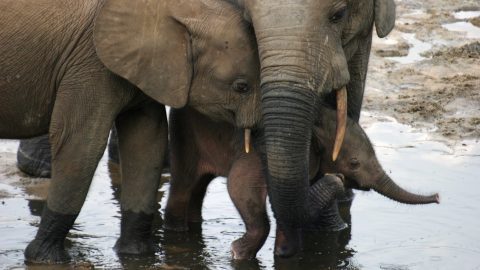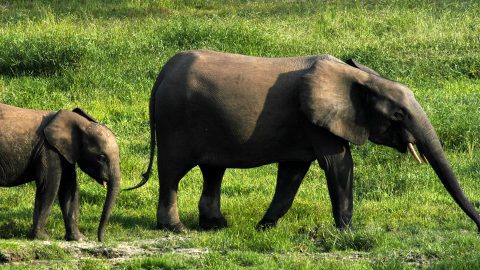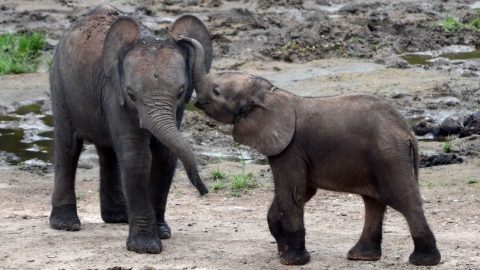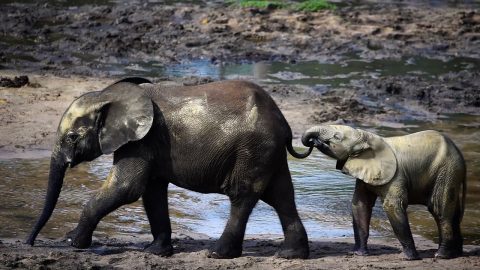One Health
thinking holistically
What is ‘One Health’?
One Health is a term used to describe the interconnectedness of animal, environmental, and human health. When one piece of the triad is changed, the other pieces are affected as well. The ultimate goal of the One Health concept is to build bridges and make connections in health. This is an integrated effort operating on both a local, national, and global scale. Founded in a multidisciplinary research approach biologists, veterinarians, doctors, and public health professionals from across the globe work to establish a more sustainable and healthful future.
One example of One Health in relation to elephant protection is the Korup National Park in Cameroon. ELP has four years worth of acoustic data studying elephants within the national park. It is typical for a national park to have a buffer zone surrounding the protected area. This gives local populations a space to hunt that is not in the park itself. The concept is to communicate with the local community. If the national park animal populations are healthy, their populations will increase and some of those animals will naturally come out of the park into the buffer zone, which in turn sustains a food source for the local community.
Protecting a healthy food source in this way helps support a healthier local community. This is a direct example of the intersectionality of One Health where environmental, animal, and human health are all inextricably linked.
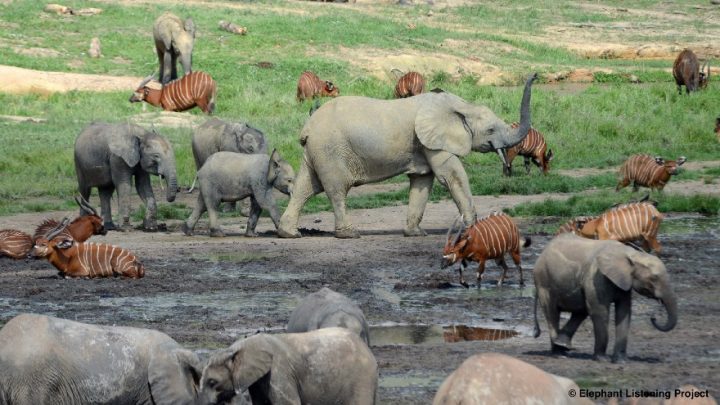
So how does this relate to the African Forest Elephant?
The Elephant Listening Project has a mission to better understand the biology of the elusive African forest elephant, but on a larger scale this is fundamentally an environmental preservation and a human rights issue. In the process of studying the behavior, communication, and physiology of forest elephants, resources are are being placed toward habitat protection.
Rainforest protection is essential to the preservation of the African forest elephant.
Elephants are being actively poached at an alarming rate. As humans continue to fight for natural resources, essential habitat is destroyed and fragmented. Rainforests have been called ‘the lungs of the earth’ for a reason. The unique biologic diversity and value these environments provide is vast.
In addition to environmental health, human health is influenced in these shared habitats. Most people are living in extreme poverty with very few resources. The human-animal conflict that arises from poaching or bush meat hunting stems from scarcity and survival. How do you care for and support yourself or your family if you have limited access to food security not to mention health care? Engaging with local people to support community health is essential to support rainforest health as well as forest elephant protection. All of this is easily described and not so easily achieved.
The more our global community can learn, stay open minded, and engage with the interconnected realities of our world, the closer we can move towards a healthier world for human animals, non-human animals, and our shared environment.


